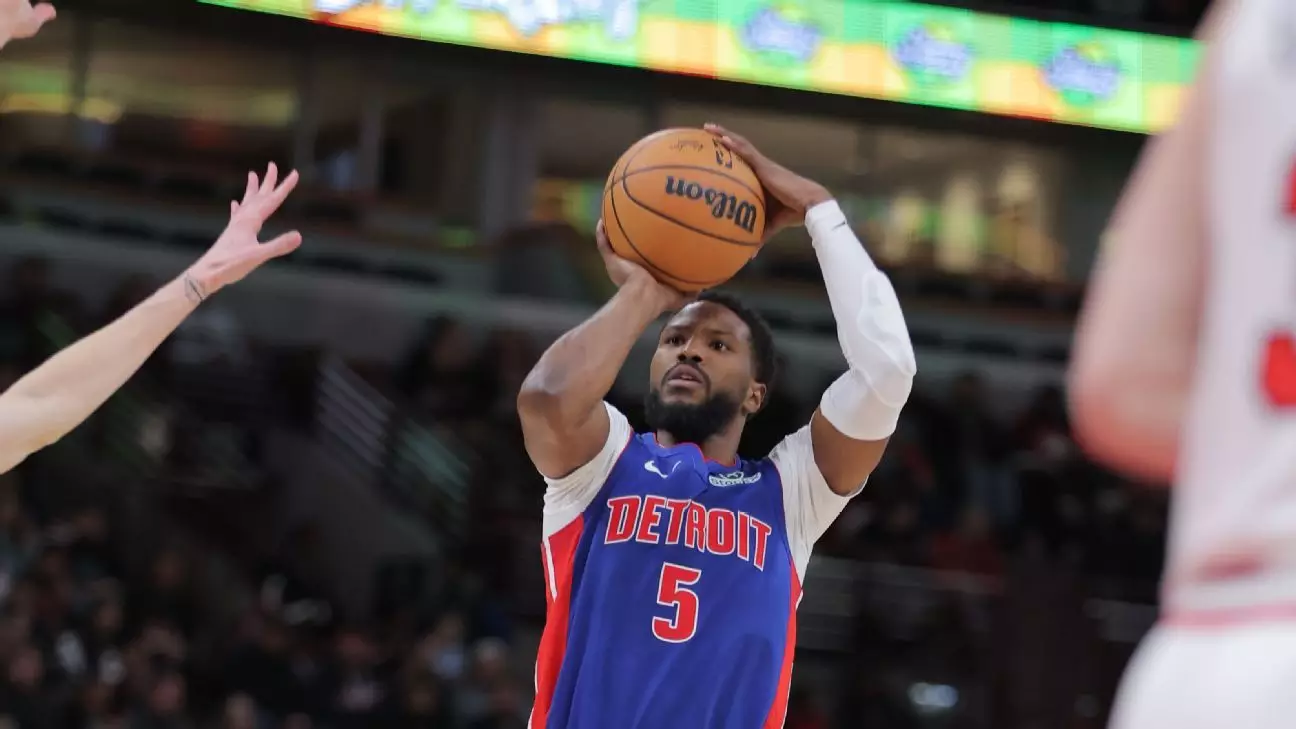The recent federal inquiry into Malik Beasley’s alleged involvement in gambling linked to NBA games and prop bets casts a dark shadow over not just the player himself, but the broader NBA ecosystem. The investigation pertains to suspicious patterns during the 2023-24 season, specifically when Beasley was with the Milwaukee Bucks. These allegations emerge in a climate where the NBA is already grappling with concerns about the integrity of its games amid increasing accessibility to sports betting. For a player once celebrated for his sharpshooting and record-breaking 3-point prowess, this situation threatens to dismantle the credibility carefully built throughout his career.
It’s important to scrutinize the nature of the allegations to understand their gravity. The clamorous betting activity surrounding one particular game — the Bucks versus Portland Trail Blazers in January 2024 — drew attention because unusual wagering shifted odds dramatically on Beasley’s rebounds, a statistical category. Curiously, the “under” bets plummeted from a modest +120 to a heavy -250, an anomaly suggesting inside knowledge or manipulation. While Beasley’s performance ultimately rendered those bets unsuccessful — ironically, thwarting bettors — the pattern itself rings alarm bells for any sports enthusiast committed to fair competition.
The NBA’s Troubling Pattern with Betting Scandals
Beasley is not the first NBA player swept by investigations regarding gambling-related misconduct. The league’s history in recent years shows a troubling pattern. Consider Jontay Porter, whose career was heavily tarnished after leaking confidential information and betting on games. Similarly, Terry Rozier remains under federal scrutiny after suspicious betting patterns were flagged. These cases collectively raise an inconvenient truth: the NBA is struggling to keep pace with the complexities that legalized sports betting introduces.
This trend suggests an urgent need for the NBA to reassess its approach to gambling oversight. It’s not enough to react to scandals after they burst into the public eye—the league must invest proactively in educating players about the ethical and potentially legal ramifications of engaging with betting markets. Moreover, with sportsbooks openly offering a myriad of prop bets now, the temptation for players and outsiders alike is unprecedented. A center-wing liberal perspective encourages balanced regulation: preserving personal freedoms but with clear, enforced boundaries to preserve fairness.
Beasley’s Troubled Past Adds Complexity
Malik Beasley’s background complicates public perception and, arguably, his current predicament. His prior felony charge related to threats of violence and a subsequent NBA suspension highlight a history of personal challenges. Although these legal troubles do not condemn him outright, they do expose vulnerabilities that could influence his decision-making, including susceptibility to gambling entanglements. His status as a journeyman athlete—five teams in four years—might also feed into a narrative of instability, which invites skepticism from the public and league officials.
Yet, it is crucial to maintain the presumption of innocence and appreciate the nuances of Beasley’s situation. Legal investigations are not verdicts, and the tendency to rush into judgments can unjustly destroy careers. However, Beasley’s case underscores the broader systemic pressures players face: the financial enticements of betting, constant media scrutiny, and the challenge of maintaining personal integrity in a high-stakes environment.
Team and League Responses Signal Increased Accountability
The Detroit Pistons have tactfully paused contract talks with Beasley amid the probe, signaling the real and immediate consequences players face even without formal charges. Meanwhile, the NBA’s cooperation with federal authorities reflects a heightened commitment to accountability that was arguably lacking in previous decades. This shift suggests a league awakening to the real threat gambling-related corruption poses—not just to competitive fairness but to the league’s reputation and fans’ trust.
However, this situation also prompts a sober reflection on whether the NBA’s current frameworks suffice. The commercialization of the sport, combined with the proliferation of legalized betting nationwide, creates an environment ripe for exploitation. Without more transparent, rigorous, and player-supportive policies, these investigations may only increase in frequency.
A Wake-Up Call for the NBA’s Future Integrity
Ultimately, Malik Beasley’s gambling investigation, regardless of its outcome, is a stark signal: the NBA must evolve amidst the realities of legalized sports betting. This evolution requires striking a difficult balance—encouraging players’ autonomy while imposing clear, effective oversight mechanisms. The league’s future credibility hinges on how decisively and transparently it addresses these challenges. Players like Beasley, caught between past mistakes and present allegations, exemplify the precarious path ahead for all stakeholders invested in the game’s integrity.

